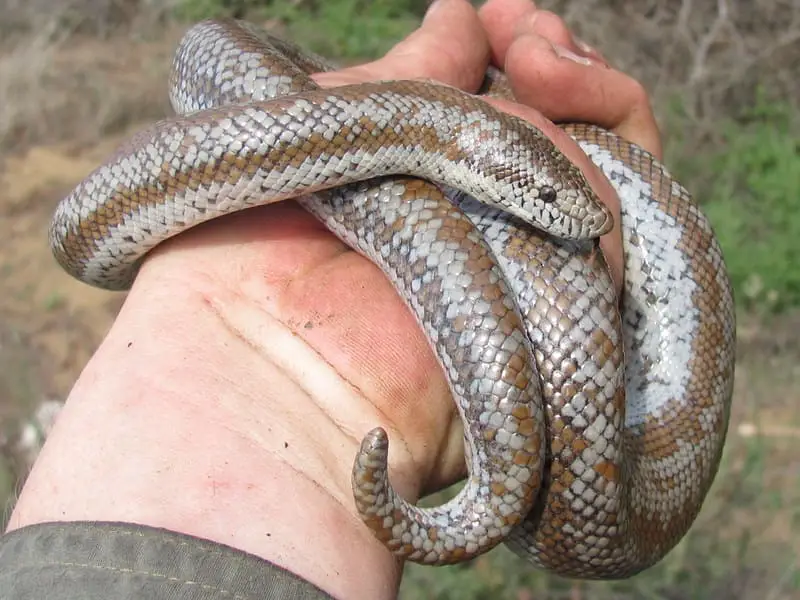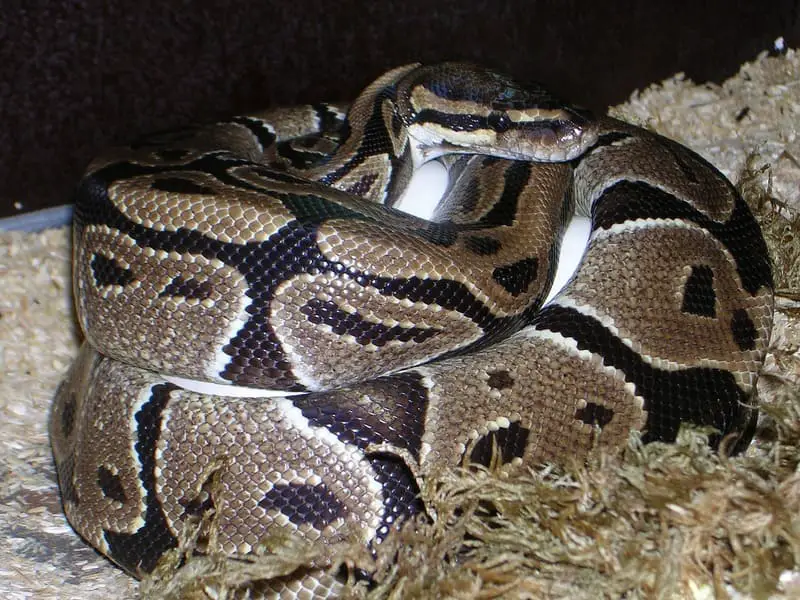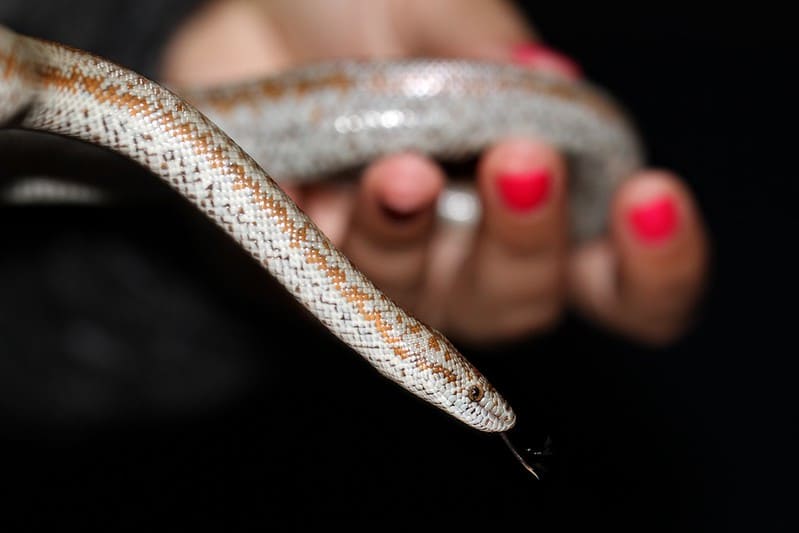For many people, the idea of owning a snake as a pet might seem unusual or even intimidating. However, snakes can make wonderful, low-maintenance pets for those who are willing to put in the time and effort to understand and care for them properly. If you’re a beginner looking to dip your toes into the world of snake ownership, it’s essential to choose the right species. In this comprehensive guide, we will explore a range of pet snakes that are perfect for beginners, discussing their care requirements, temperaments, and some common misconceptions about these fascinating reptiles.

The Appeal of Pet Snakes
Before we dive into specific snake species, let’s discuss why snakes make appealing pets for beginners:
Low Maintenance
Snakes are relatively low-maintenance pets when compared to more traditional animals like dogs or cats. They don’t require daily walks, grooming, or constant attention. This can be a significant advantage for people with busy lives or those living in smaller spaces.
Space Requirements
Snakes are well-suited for individuals with limited living arrangements, as many species can thrive in smaller enclosures, making them an excellent choice for apartment dwellers or those with limited outdoor space.
Educational and Aesthetic Value
Snakes offer a unique opportunity for education and aesthetic enjoyment. Their intriguing behaviors, diverse colors, and patterns can provide a captivating experience for snake enthusiasts and observers alike.
Quiet Companions
Unlike noisy pets such as dogs or birds, snakes are incredibly quiet. Their low-impact presence makes them an excellent choice for people who live in close quarters with others or who simply prefer a more peaceful environment.
Understanding the Basics
Before selecting a pet snake, beginners should familiarize themselves with some fundamental aspects of snake care and ownership. These include:
Lifespan
Snakes can have a long lifespan, often ranging from 15 to 30 years, depending on the species. Potential snake owners should be prepared for a long-term commitment.
Enclosure Requirements
Understanding the specific enclosure needs for your chosen snake species is crucial. Factors such as size, temperature, humidity, and security must be carefully considered.
Feeding and Nutrition
Snakes are carnivores, and their diets consist primarily of rodents. Learning about appropriate feeding schedules and nutrition is essential for their health.
Handling
While some snake species tolerate handling well, it’s important to remember that not all snakes enjoy or benefit from human interaction. Research your chosen species to determine its temperament.

Popular Pet Snake Species for Beginners
Now, let’s explore some of the most popular pet snake species that are well-suited for beginners:
Ball Python (Python regius)
Description:
Ball pythons are known for their gentle disposition and relatively small size. They typically reach lengths of 3 to 5 feet, making them manageable for most snake enthusiasts.
Care and Temperament:
Ball pythons are generally docile and easy to handle. They require a secure enclosure with proper temperature and humidity control. Their diet consists of appropriately sized rodents, typically every 7-14 days.
Common Misconception:
One common misconception about ball pythons is that they can be finicky eaters, especially when they are young. While this can be true for some individuals, proper husbandry and patience often resolve feeding issues.
Corn Snake (Pantherophis guttatus)
Description:
Corn snakes are attractive and colorful, with patterns that resemble Indian corn. They are relatively small, usually ranging from 3 to 5 feet in length.
Care and Temperament:
Corn snakes are known for their docility and adaptability. They are excellent for beginners because of their ease of care, including temperature and humidity requirements. They feed on mice or rats every 5-7 days.
Common Misconception:
Some people mistakenly believe that corn snakes are aggressive, but in reality, they are usually quite calm and easy to handle. They are a great choice for those new to snake ownership.
King Snake (Lampropeltis getula)
Description:
King snakes are attractive, with distinctive bands or stripes. They come in a variety of color morphs and are usually between 3 to 4 feet in length.
Care and Temperament:
King snakes are hardy and adapt well to captivity. They have a reputation for being feisty as hatchlings but generally become more docile with age. Proper care, including heating and humidity control, is essential for their well-being. They eat rodents every 5-10 days.
Common Misconception:
Some people believe that king snakes are venomous. This is not true; they are non-venomous constrictors. Their name often leads to confusion, but they are harmless to humans.
Rosy Boa (Lichanura trivirgata)
Description:
Rosy boas are small, heavy-bodied snakes with a calm and gentle disposition. They typically reach lengths of 2 to 3 feet.
Care and Temperament:
Rosy boas are known for their docility and are easily handled. They have specific temperature and humidity requirements that should be met in their enclosures. Their diet includes rodents, with feeding occurring every 7-14 days.
Common Misconception:
Rosy boas are often thought to be challenging to find and expensive. While they may not be as readily available as some other species, they are not necessarily rare or excessively costly.
Garter Snake (Thamnophis sirtalis)
Description:
Garter snakes are known for their slender bodies and striking patterns. They are relatively small, typically ranging from 1 to 3 feet in length.
Care and Temperament:
Garter snakes are generally easy to care for and have a mild temperament. They are known for their unique diet, which includes fish and amphibians in addition to rodents. Their enclosures should provide access to water for soaking.
Common Misconception:
Some people assume that garter snakes are smelly due to their diet, but with proper care and hygiene, they do not emit unpleasant odors.
Children’s Python (Antaresia childreni)
Description:
Children’s pythons are small, with adults typically reaching lengths of 2 to 3 feet. They have attractive patterns and are known for their manageable size.
Care and Temperament:
These pythons are generally easy to handle and have calm temperaments. They require a well-heated enclosure with controlled humidity. Their diet primarily consists of small rodents, typically every 7-14 days.
Common Misconception:
Despite their name, Children’s pythons are not exclusively suitable for children. They can be excellent pets for adults as well.
Selecting the Right Snake
When choosing a snake as a pet, it’s crucial to consider various factors to ensure a good match between the owner and the snake. Here are some key considerations:
Size
Consider the size of the snake. Different species have different adult sizes, and you should choose a snake that fits comfortably within your living space.
Temperament
Evaluate the temperament of the snake. Some species are naturally more docile and easier to handle, while others may be more defensive or prone to biting. Assess your comfort level with snake behavior.
Feeding Requirements
Understand the feeding needs of the snake. Some snakes require a diet of rodents, while others may need a variety of prey, including fish or amphibians. Ensure you can meet their dietary requirements.
Enclosure and Habitat
Consider the type of enclosure and habitat the snake needs. Some species require elaborate setups with specific temperature and humidity controls, while others are more forgiving in this regard.
Lifespan
Remember that snakes can have a long lifespan. Be prepared for a long-term commitment when choosing a pet snake.

Common Misconceptions about Pet Snakes
As with any pet, there are several misconceptions and myths surrounding snake ownership. Let’s address some of the most common ones:
All Snakes are Dangerous
One prevalent misconception is that all snakes are dangerous. In reality, the majority of snake species kept as pets are non-venomous and pose no threat to humans.
Snakes are Aggressive
Many people believe that snakes are inherently aggressive. While some individuals may exhibit defensive behaviors, proper handling and care can often mitigate this.
Snakes are Slimy
Snakes are often thought to be slimy due to their smooth, shiny scales. However, snakes are not slimy at all; their scales are dry and cool to the touch.
Snakes Don’t Bond with Their Owners
Some individuals believe that snakes are incapable of forming bonds with their owners. While the nature of these bonds may differ from that of more traditional pets, snakes can become accustomed to their owners and exhibit recognition of familiar humans.
Snakes are High-Maintenance
Contrary to this misconception, many snake species are relatively low-maintenance. They do not require extensive grooming or constant social interaction.
Conclusion
Pet snakes can be fascinating and rewarding companions, especially for those who are interested in reptiles and willing to invest time and effort into responsible ownership. When considering a snake as a pet, it’s crucial to choose a species that aligns with your experience level and living situation. The snake species mentioned in this guide, such as the ball python, corn snake, king snake, rosy boa, garter snake, and Children’s python, are all excellent choices for beginners.
Remember that successful snake ownership involves research, proper husbandry, and responsible care. Each snake species has its unique requirements, so thorough understanding and commitment are essential to ensure your pet’s well-being and longevity. By dispelling common myths and misconceptions about snakes, you can make an informed decision and enjoy a rewarding experience as a snake owner. Whether you’re drawn to their captivating beauty, low-maintenance nature, or educational value, pet snakes can make excellent companions for those willing to embrace the world of reptile ownership.
